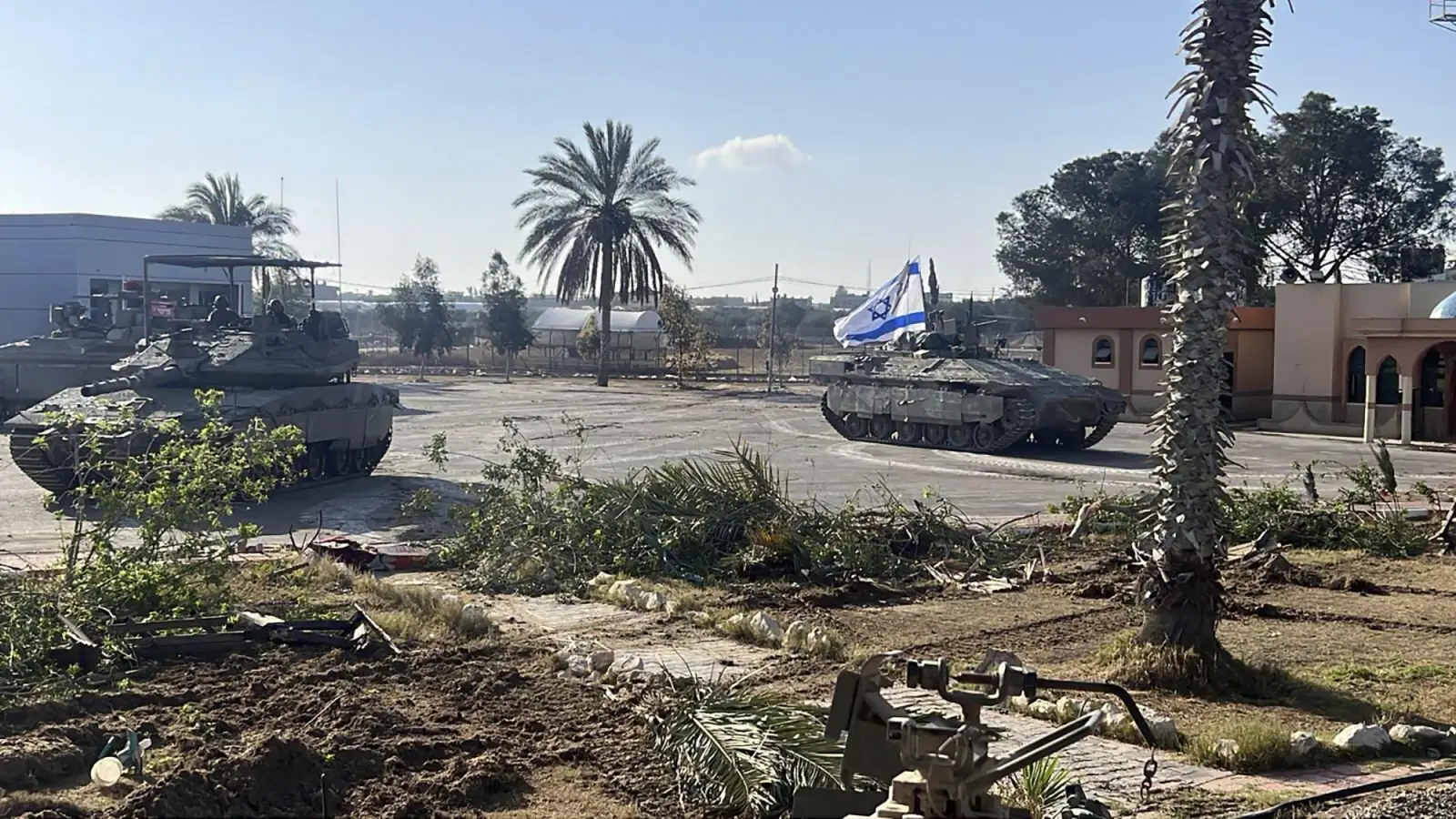Israeli troops seized control of Gaza’s Rafah border crossing on Tuesday in what the White House described as a limited operation. Some fear a full-scale invasion of the southern city, and talks with Hamas over a cease-fire and hostage release remain on a knife’s edge.
The Israeli foray came after fighting seemed to intensify at the crossing. The militant group said Monday it accepted a cease-fire proposal that Israel insisted fell short of its core demands.
The high-stakes diplomatic moves and military brinkmanship left a glimmer of hope for a deal to bring at least a pause in the war, which some say has killed more than 34,700 Palestinians and has devastated the Gaza Strip.
The Rafah and Kerem Shalom crossings are critical entry points for food, medicine, and other supplies for Gaza’s 2.3 million people. They have been closed for at least two days, although the smaller Erez crossing between Israel and northern Gaza remains open. By capturing the Rafah crossing, Israel gained full control over the entry and exit of people and goods for the first time since it withdrew soldiers and settlers from Gaza in 2005. However, it has long maintained a blockade of the coastal enclave in cooperation with Egypt.
Israeli Prime Minister Benjamin Netanyahu called the capture of the crossing an “important step” toward dismantling Hamas’ military and governing capabilities. Defense Minister Yoav Gallant said Israel would “deepen” the Rafah operation if talks on the hostage deal failed. Osama Hamdan, a Hamas official based in Beirut, said the militant group would not respond to military pressure or threats and would not accept any “occupying force” at the Rafah crossing.

